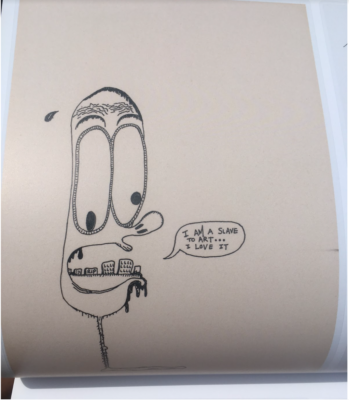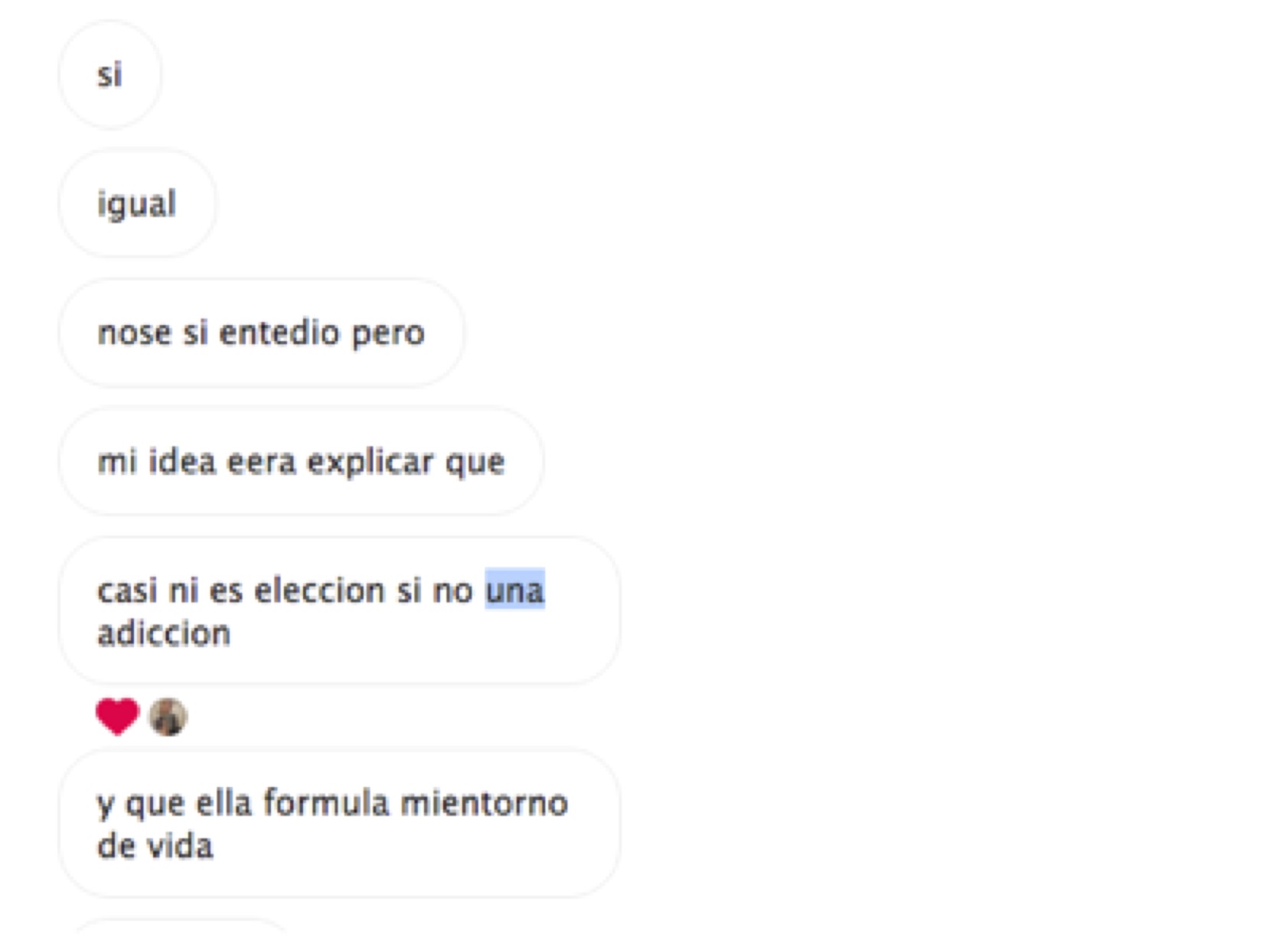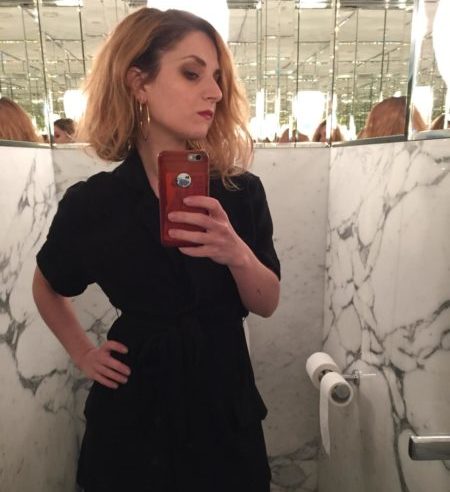Search
To search for an exact match, type the word or phrase you want in quotation marks.
A*DESK has been offering since 2002 contents about criticism and contemporary art. A*DESK has become consolidated thanks to all those who have believed in the project, all those who have followed us, debating, participating and collaborating. Many people have collaborated with A*DESK, and continue to do so. Their efforts, knowledge and belief in the project are what make it grow internationally. At A*DESK we have also generated work for over one hundred professionals in culture, from small collaborations with reviews and classes, to more prolonged and intense collaborations.
At A*DESK we believe in the need for free and universal access to culture and knowledge. We want to carry on being independent, remaining open to more ideas and opinions. If you believe in A*DESK, we need your backing to be able to continue. You can now participate in the project by supporting it. You can choose how much you want to contribute to the project.
You can decide how much you want to bring to the project.

VÍCTOR JAENADA, artist, June 22nd
I keep at it, mainly, to be calm in spirit, and then there are a lot of sub-responses.
ÀNGELS MIRALDA, critic and curator, Terrassa, June 23rd
In my early years, growing up between Spain and the United States – two states whose legal systems are a mockery of justice – I decided not to follow any laws other than the laws of nature. In the 17th century, Sir Isaac Newton wrote down his theories in The Principia. You will surely be familiar with the first, the law of motion – sometimes referred to as the law of inertia. It famously states that an object at rest stays at rest and an object in motion stays in motion with the same speed and in the same direction unless acted upon by an unbalanced force. Of course, this law is imagined in the abstract theoretical context of the physical void and in the total absence of such common things as friction, or gravity. In reality, we live in a world full of conflicting forces, some physical, some cultural. As an individual, I am in motion, and stopping that motion would take a great deal of acting upon by an unbalanced force. For the past few years, I have expended a great deal of energy in propulsion techniques that have made me gain speed to an increasing degree by countering the natural friction of the world with greater outputs of accelerative force. All of this was done simply by working.
The physical definition of work is the transfer of energy – in other words, force must be exerted and some displacement must be produced in the direction of that force. In those terms, you could say that I hardly work at all other than the propulsion of myself physically from one point to another. In brief, I continue to work because there is simply no other option. Even if there was, I doubt it would be so beneficial as my current arrangement of self-sufficiency based on personal movement from one place to another. Socially, inertia also functions on my capability of work in terms of confidence. Once you curate one exhibition in a museum, other museums no longer find it strange to invite you to curate an exhibition. Therefore, the inertia is simply a life-long expense of energy to jump through hoops and obstacles and maintain speed at least at a constant level.
ORIOL FONTDEVILA, critic and curator, July 2nd
out of enthusiasm (I took the bait)
PABLO DEL POZO, artist, July 2nd
I think that if I would ask that question to myself often, or if it came from myself, I would stop working right away. Because of the times we are in, every day I see less sense in many things, including artwork that just gives more head feeders and a bigger hole in the pocket. But, here I am.
BERNAT DAVIU, artist and gallerist, July 2nd
In fact, I haven’t had that much time to work on my projects in a long time. All my work commitments were suddenly stopped by the coronavirus, so I was able to devote myself almost exclusively to doing what I wanted to do. That’s why, although it seems contradictory with the current times and with the few perspectives for the future, I continue working because for me, right now, what I do has more coherence and sense than ever.
MARCEL RUBIO JULIANA, artist, Barcelona, July 6th
I work to build a commonplace. To make people a little less blind, a little less ignorant, a little less tough, a little less brutal. Always, in every work of art, there is a program of humanity a little less brutal.
ROC PARÉS, artist, Foixà, July 6th
Although I would often prefer not to, I continue to work towards the unknown.
ANTONIO ORTEGA, artist, Barcelona, July 6th
Proposing to do nothing as a contribution to the context of art may seem unreasonable. More so, if this position demands a certain amount of attention during the course of that contribution which, let remind, is based on “doing nothing”.
However, when someone intends to contribute by doing nothing, it is necessary to consider some of the questions that emanate from such a “position: (a) am I simply presenting an IDEA, that is, the idea that I do not have to do anything? Or (b), am I presenting a REVINDICATION, that is, the statement that I do not want to do anything? These questions, in turn, raise the additional question; the one that asks whether my contribution is considered an IDEA or a REVINDICATION, it would be logical for someone to want to know exactly what the respective modes of existence of the IDEA or the REVINDICATION in question are CIRCUMSTANCES.
CIRCUMSTANCES that arise from (1), being considered to contribute in the context of art, (2), the acceptance to contribute, and finally (3), that the condition for accepting to be considered to contribute in the context is, then, NOT TO DO ANYTHING.
FRANCESC RUIZ ABAD, artist, Calonge, July 7th
Because it is my love and my condemnation: “I’m a slave to art… I love it”
This drawing by Oliver Kossack explains it very precisely.
GINO RUBERT, artist, Sant Martí d’Empúries, July 6th
For me, working is basically a way to combat anguish, stress, and chronic insecurity, so that I can go to bed calm, tired, and looking forward to the next day.
MARLA JACARILLA, artist, Barcelona, July 7th
Here are a dozen reasons, in order of importance (or not):
-Because it’s the best way to ask myself questions, even if they don’t have answers.
-Because the easiest way is usually not the most interesting one.
-Because otherwise, I would have too much free time left.
-Because it’s the best way to avoid routine.
-Because there’s still a lot to do in the art world.
-To keep making mistakes.
-To keep learning.
-To keep enjoying myself.
-To keep suffering.
-To keep looking.
VICENÇ ALTAIÓ, writer, art critic, and ideas dealer, Barcelona, July 9th
I work so I can write, so I can be free. So far I’ve worked on writing without writing in order to write. Now I’m leaving it definitively in order to engage with other cultural activists and get out of the spiral to situate myself in a timeless and conclusive time, without partitions. Writing is a life impulse against the fatality of ordinary, domesticated life, which represents the death of language when it is strictly practical, useful, and commercial. I do not manage writing. Writing is not work in exchange for. Against the name of “catastrophe” with which history is written, writing is an act of freedom. He who writes does not write himself, but the permanent mutation of human technology, which is also language when it is not instrumental. Reading is a way of catching the shadow of writing in the eye or in the voice. The writing of the visual manifests itself in the concentration of space or time. What is to be done: read and walk; investigate; live in-depth and transform.
JOAN MARIA MINGUET BATLLORI, art writer and retired professor at the UAB, Belltall, July 10th
1. The first thing is to become aware that what we do in the cultural field is to work. That is, we sell our workforce to someone who takes advantage of it, a public or private institution.
That Marx already included cultural work when, in The Capital, he defined labour force as “the set of physical and mental faculties that are in the corporeality, in the living personality of a human being and that he puts in motion when he produces values of use of any kind”.
The fact that those who take advantage of your labor force are sometimes naive (like you?), the lowest nerve of the capitalist system, does not annul the subordinate position that your work has in the chain of cultural production.
Just because you like your occupation, you should not become a submissive scab with the working conditions imposed on you. So that you are not, in addition to being exploited, an imbecile.
2. Consequently, you have to decide, not whether you work or not, that only those who live in opulence can decide, which means that they or their relatives take advantage or have taken advantage of the labour force of a few members of the subordinate class, but you have to decide your degree of commitment, which is inversely proportional to the degree of concessions you are willing to offer the system.
That this will depend, of course, on whether you commit yourself to something in your life as a political subject, a question that is inseparable from the work you do as an artist, theorist, critic, etc.
That Antonio Gramsci wrote: “The conquest of cultural power is prior to that of political power”. Whether or not you agree with this sentence, put it into practice with your work or disregard what it means, even if you claim to agree with its statement on a theoretical level, is substantial and divides the workers in the culture factory between those who seek cracks in the cultural/political system to put it into question and those who work to please the power.
That you please the power with your work consciously makes you miserable. That you do it consciously, but thinking that you have done such a good job that no one can miss it for the sake of humanity, makes you a miserable lack of solidarity.
That looking for security gaps in the cultural system through which to bombard individual and collective consciousness with art and thought is a complex and boggy task. Yes, so what?
3. I’m still working, first of all, because there are still people who commission or accept projects or things from me, despite the fact that I’m increasingly disgusted by the consensus of the art and literary world, or because the system doesn’t give a damn about my political attitude. Secondly, I continue to work in order to be able to (over)live, thinking that I’m lucky enough to be able to carry out my struggle for egalitarianism in the field of ideas, and it’s not necessary for me to sell my labour force in a metallurgical, chemical or automobile factory… as so many people have done, are doing and, unfortunately, will do.
ARIADNA GUITERAS, artist, Barcelona, July 10th
This question comes to me at a time when I am not actively working. I have been on maternity leave for three months and before that I decided to stop and take advantage of every second of the first months of my child’s life. I didn’t know if I could do it, it’s easy to say, but the ghosts appear when you don’t participate in the ouroboros that working as an artist means. At the moment I’m succeeding and I get lost (almost) without guilt among folds of meat, milk, tears and much, much love.
JOSÉ CAEROLS, artist, Santiago de Chile, July 10th
I will start by dismembering this question as a sadist, imposing a previous question on it which would be What do I understand by work?
My relationship with what is understood by work does not cease to be cloudy, amorphous and undefined, to say the least. On the one hand, I understand the concept of work from the Marxist idea that defines it as a “process between the person and nature, a process in which this medium regulates and controls its metabolism with nature. The person faces the natural matter itself as a natural power”. This description that I share in the conceptual plane, is opposed to the hypercapitalist vision imposed by the Market and the present system that defends it with claws, allowing it to carry out the simplistic definition of what work is what you do to obtain an end in relation to this system.
So what do I understand by work, or rather do I consider my activities to be work?
By my activities, I refer to the constant analysis and critical thinking that I develop through projects that lead me to the realization of physical pieces called socially in the contemporary context as visual arts, but I also refer to my work in the “construct” (as we call it in Chile) or work, in the reform of floors, in the work of bartender or university teaching. This range of activities that I have carried out as an individual is clearly positioned differently in society, according to this, of course.
Why do I continue working?, today, two days before completing almost 4 months of failed quarantine, I answer why continue working? and in what way?….
First I will approach the second question, I have developed two forms of “work” in my confinement, The first one is developed as a method of direct survival to my present situation, the reinvention of my activities from my present situation (confinement) is an obligatory matter for my survival in a hyper-capitalized system where the precarization of life affects all its levels, coming very close to Walter Benjamin’s concept when he affirms that “The author is a producer”. The second form of work that occupies me almost all the time does not have a fixation with super-experience, but with experience; I explain, my practices both conceptual, investigative and productive linked to the mute identified as contemporary art, are a projection of social and emotional factors that by a sentimental and political relationship with life is not possible for me to ignore. Life and the existence in it is an obvious fact that, far from ending, grows, as an individual who recognizes himself as an addictive personality, this is the greatest since it does not consist of a clear end but rather a practice diluted among reflections, thoughts, references, sensations, and events.
Then the question of why do you continue working, would have from my person the obvious answer, to survive both physically and spiritually, clarifying that this is not an option.

EDUARDO RUIZ, artist, Sant Boi de Llobregat, July 12th
So I don’t have to watch the roof fall in on me.
If we want art to be considered fair and continue to bear fruit over time, we must stop differentiating between this and other work.
To really believe it.
No one put in as much perseverance as we did.
Trying to shore up a cracked structure, holding up the weight of the problems that befall us.
This, this is a job! And I’m a factory.
We must get on with it!
(Featured Image: Drawing by Oliver Kossack proposed by Francesc Ruiz Abad in his answer)

Gisela Chillida (Barcelona, 1987) is an art critic, independent curator and cultural manager. She writes regularly for the magazines and publications Bonart, Hänsel i Gretel, Núvol-Digital de Cultura, La Maleta de Portbou, Politica&Prosa and Diario Levante. Recently, he has published the book “Galeries d’art a Catalunya” and the catalogue of the exhibition “Tàpies/Alcaraz/Rubert” at Kunst Lager Haas in Berlin. Some of her exhibitions as a curator have been shown in the galleries Àngels Barcelona (Enésima Intempestiva), Arte Aurora (El pliegue y Seastanding) and Àcid Sulfúric (Europolis), the space Cera 13 (Luna y polvo) or in Fase Espacio de Creación y Pensamiento. Since 2018, she coordinates the Loop Discover Award, held within the framework of the LOOP Barcelona video art festival and fair.
"A desk is a dangerous place from which to watch the world" (John Le Carré)